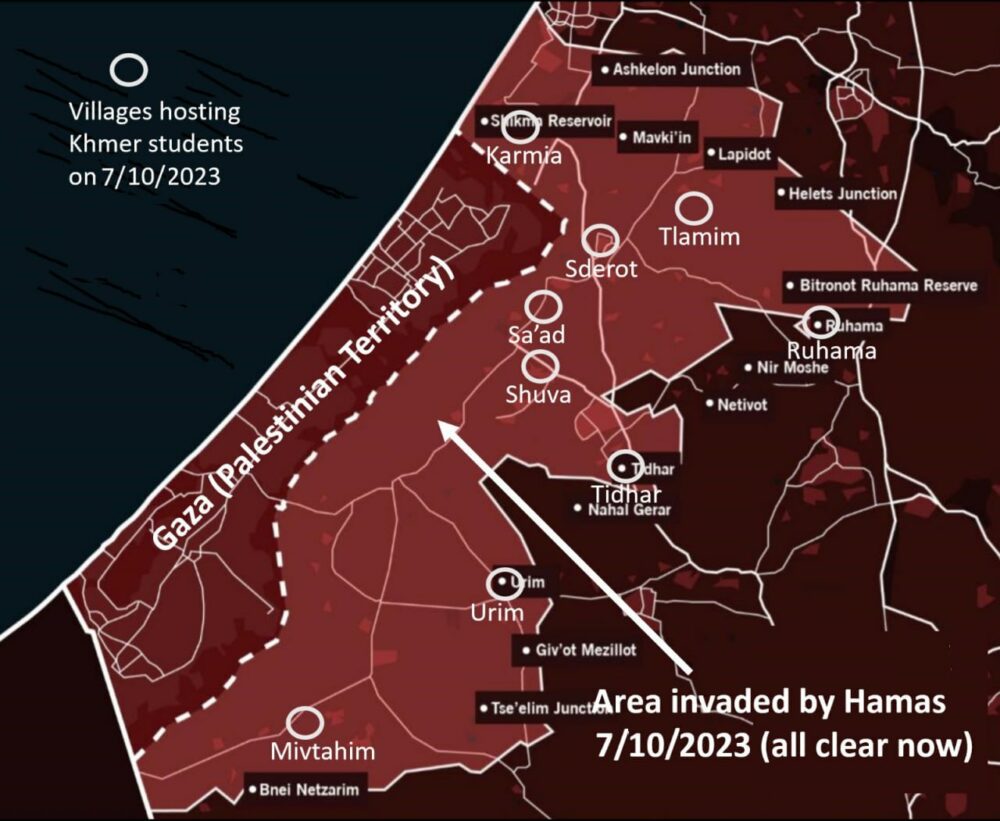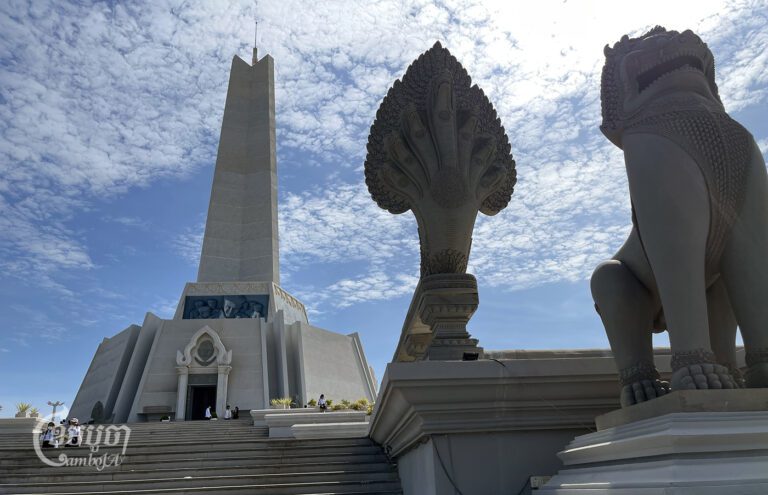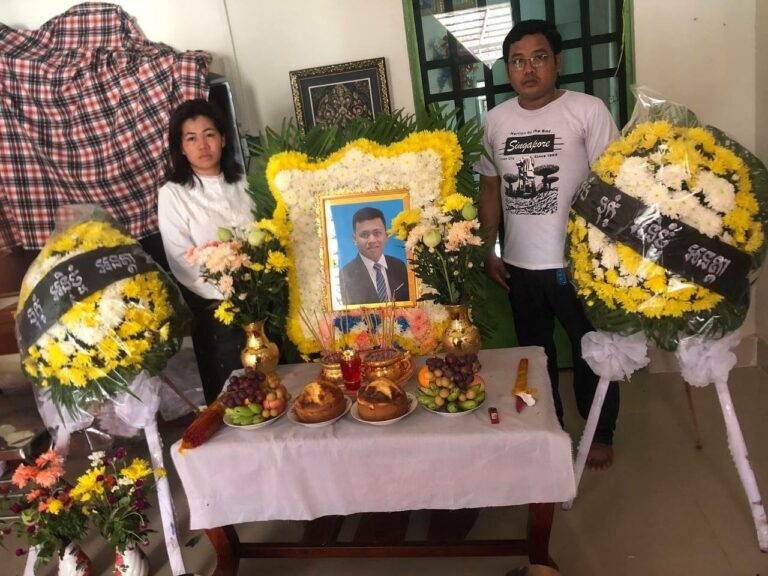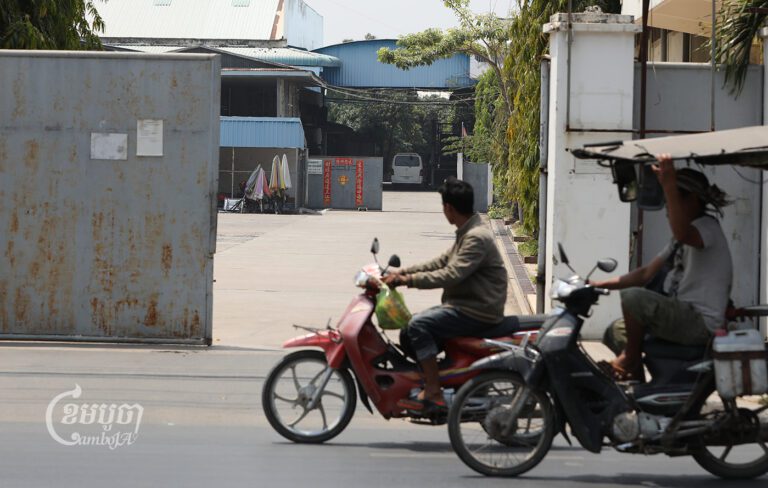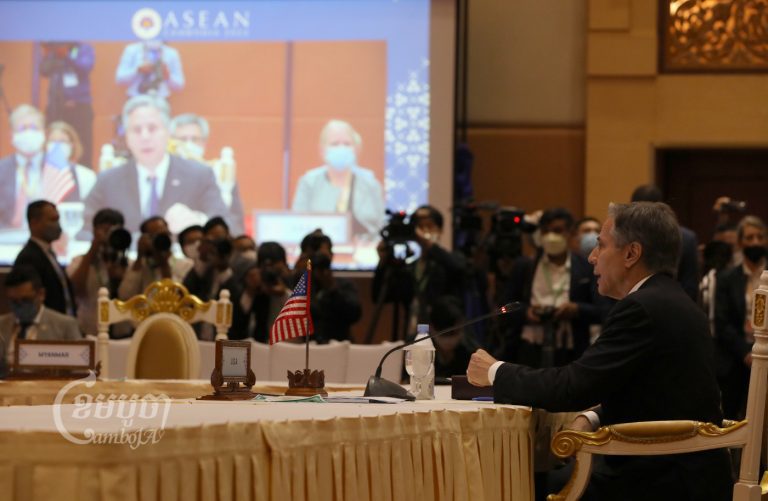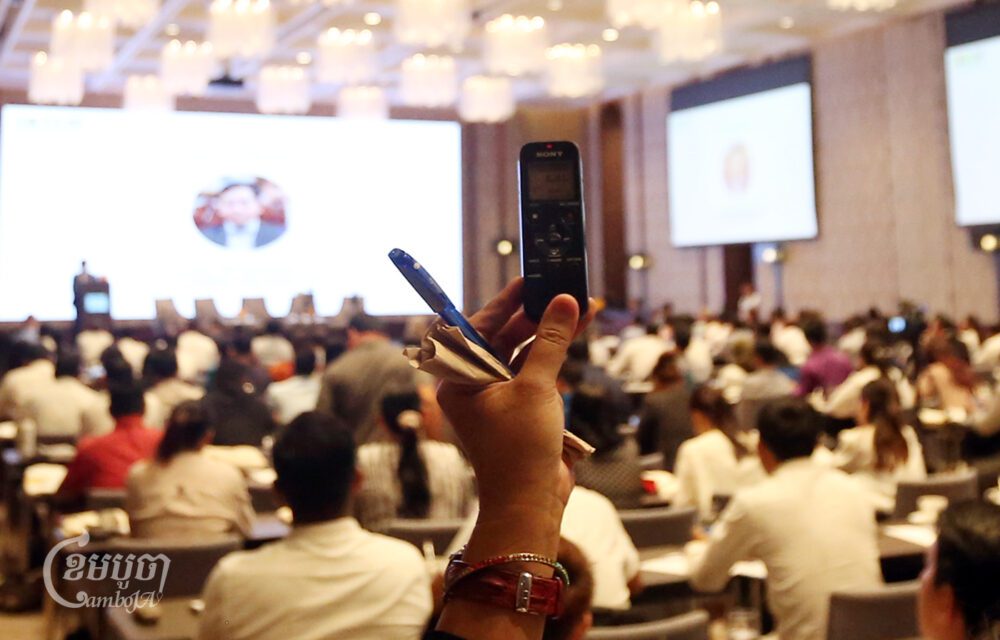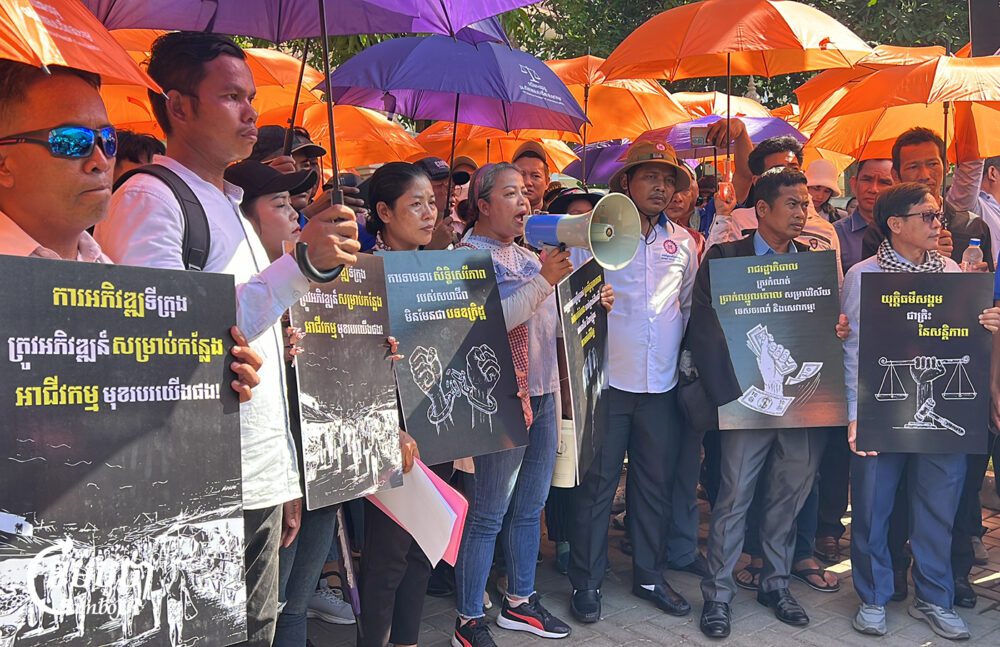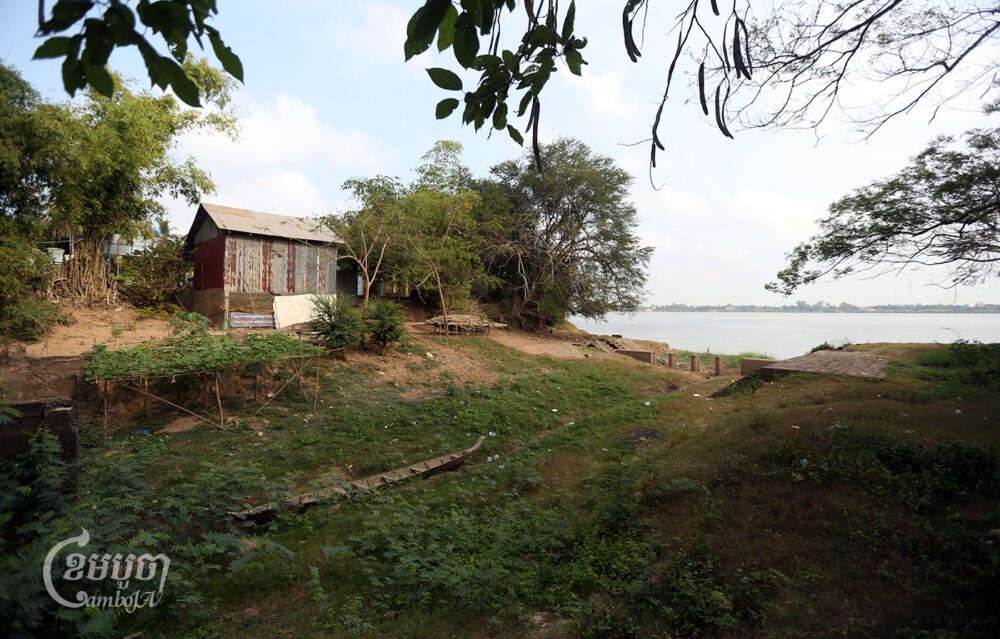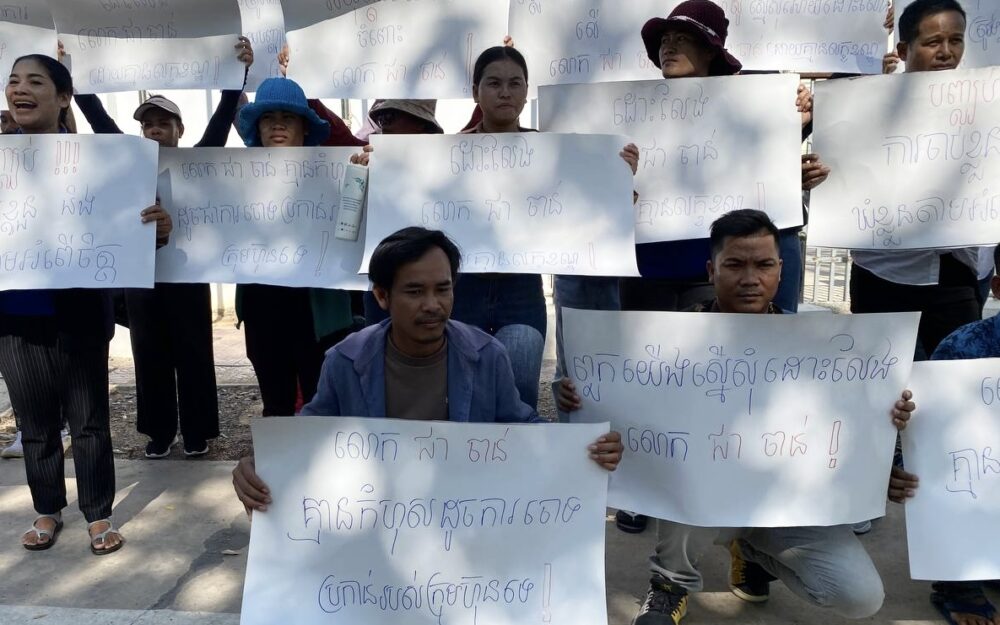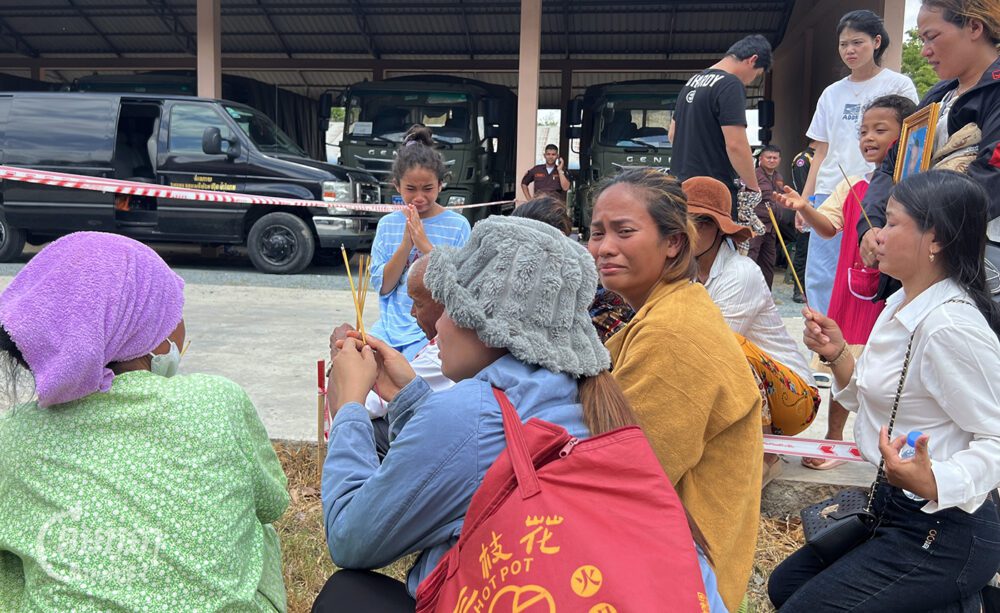Although the newest war between Gaza and Israel is more than 7,000 kilometres away, its reverberations can be felt all the way in Cambodia, where the families of hundreds of Cambodians living in Israel, as well as Cambodia’s tiny Jewish and Palestinian communities, grapple with what is happening to their distant relatives and friends.
In Cambodia’s only synagogue, a small group of Jews living in Phnom Penh lit candles on Monday for those they lost the weekend before, when hundreds of gunmen from Gaza penetrated Israel’s border in a surprise attack, slaughtering over 1,000 people, and abducting scores more as hostages. Most of the Jews inside knew people who had been killed or were missing.
“The community is devastated,” said Rabbi Bentzion, the spiritual leader for most of the community. “It clashed with a happy holiday, and we had a very hard time combining the tragic feeling with the joyous feeling.” He was referring to the holiday of Simchat Torah (Happiness of the Torah), a holiday traditionally celebrated by singing, dancing, and drinking, which fell on the same day.
Outside the synagogue, a mixture of Cambodian police and military sent by the Ministry of Foreign Affairs watched over the narrow street leading to the building, to prevent attacks on the community, after Israeli tourists and their guide were killed in Alexandria. On Monday, the rabbi was visited by Lieutenant General Hun Samnang, Police Colonel Teang Chansar, and several other high ranking security officials to discuss possibilities of regular patrols outside the synagogue. The rabbi states that the police arrived before he reached out to the government to ask for protection.

“Jews and Israelis all over the world are in danger,” said Rachel Farfara, an Israeli art teacher living in Phnom Penh, who lost several friends and a family member in the attack. She is not religious, but said she went to the synagogue despite the risk because it is “the only place where the fear and pain I feel is legitimate.”
She told CamboJA that she felt joy and gratitude when she saw the armed Cambodian security forces outside. She did not expect it and was impressed by the government’s swift action, because she did not think it would be clear to outsiders that the Jewish community would need protection.
“It just takes a few idiots to say ‘wow, there are Jews here,’ and get some ideas,” said Claude Bloom, a Belgian-Israeli congregant, about the nervousness many felt about going to synagogue. He said the presence of Cambodian security made him feel more comfortable. “It is touching that they worry about us…that they understand that we need this.”
The Palestinian community of Cambodia is smaller and has no community center, so Cambodia’s few Palestinian residents have no place to congregate, grieve, and support each other as their home country is subject to constant airstrikes from Israel in retaliation to the attacks. One Gazan, Aziz, has lived in Phnom Penh for five years, and says he does not know of any other Gazans in the country. He told CamboJA about the difficulties in finding someone to talk to for support in Cambodia.
“It’s really tough. The fear of losing loved ones is heart aching. So I talk to my partner and friends, some friends contact me to check if my family is ok, it helps a little bit. But mostly I feel sad, worried, and angry sometimes.”
He told CamboJA that his aunt, sister, cousin, and several of his friends and distant relations have already lost their homes to Israel’s bombing campaign. None of them, to his knowledge, have any connection to any Palestinian militant groups. His mother and sister attempted to flee Gaza via the border with Egypt on Sunday, paying $1,000 dollars (average monthly wage is approximately $207, according to Gisha) each for a security clearance.
However, the border crossing was destroyed by an Israeli airstrike, trapping them inside, where according to international reports there is a rapidly dwindling supply of food, water, and fuel as airstrikes continue. Aziz and his brother, who is also abroad, struggled to get in contact with their family inside.
“We know they have no electricity or internet connection because no one responds to our messages,” he said. “Or at least that’s what we hope for.”
During the interview, his brother texted him that he had gotten confirmation that their family was safe. He is currently trying to help his brother in Gaza get a visa to come to Cambodia. The initial attack took place along the border with Gaza, in a largely agricultural region of Israel where thousands of Southeast Asians study agriculture, or work in special exchange programs on farms. The BBC reported 12 Thai citizens killed and 11 kidnapped so far, and Prime Minister Hun Manet confirmed that a Cambodian student, Chan Oudom, was also killed in the area. Around 450 Cambodians are currently in Israel, according to the Ministry of Foreign Affairs, and most of them are there to study agriculture.
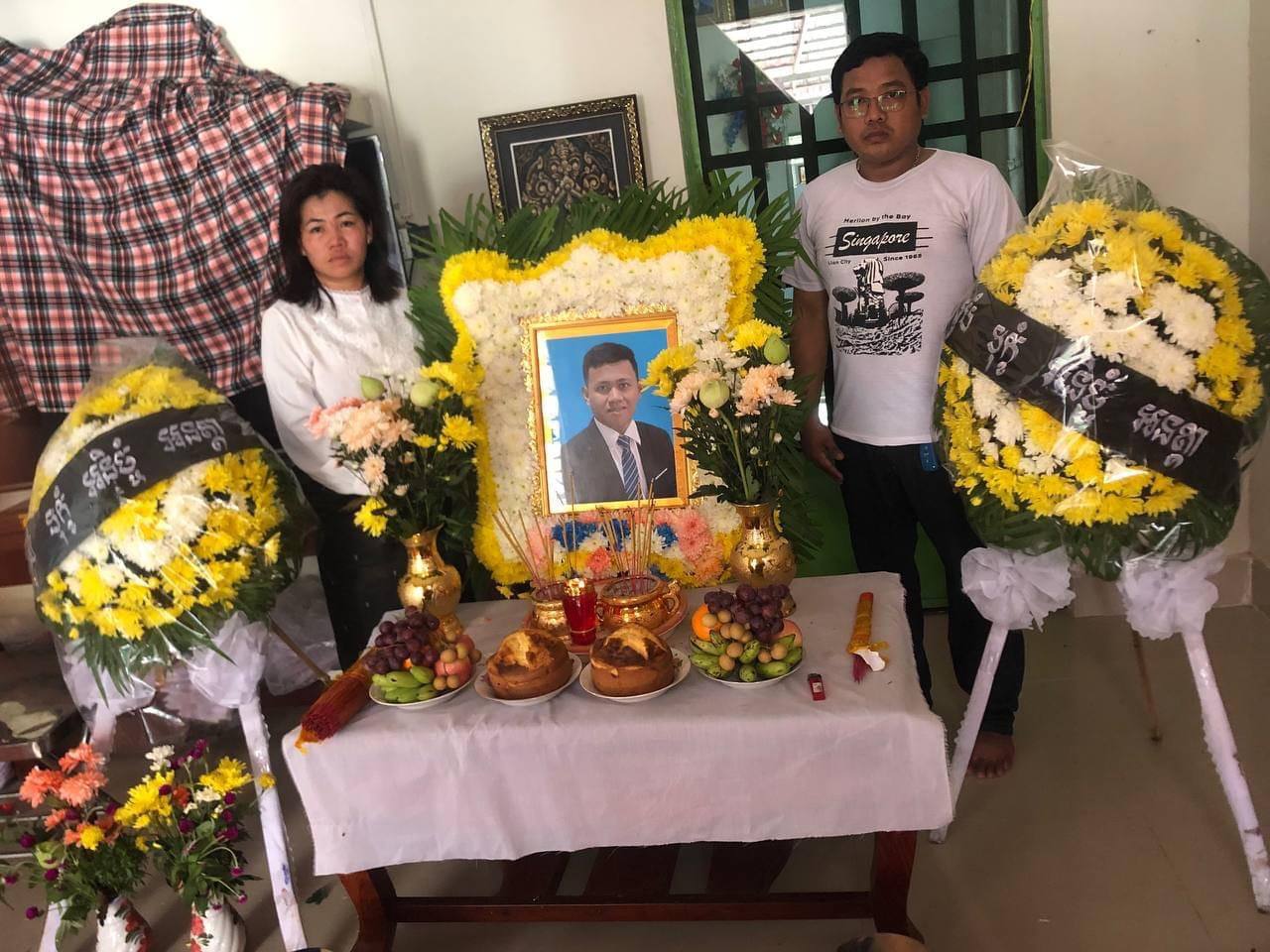
Aziz said several of his Cambodian colleagues sent him local news about the Cambodian student who died with several others.
“It’s so sad. These kids were just in the wrong place at the wrong time…Had absolutely no idea what they were getting into or what could ever happen,” he said. He described the attacks as “needless and merciless,” but also expressed worry at how Cambodians might feel about him being from Gaza. “Somehow I feel as if I would be perceived as partially responsible for this.” Aziz asked CamboJA not to publish his full name. He said he had gotten hostile reactions from people when telling about his background, particularly Israeli tourists, even before the current escalation and what he described as a “genocidal atmosphere.”
On the other side of the continent, some people rushed to help Israel’s small Cambodian community.
“We sat in our home in Jerusalem and thought how we could be useful in this war.” Wrote Divon Lan to CamboJA, in Hebrew. He is an Israeli citizen who has extensive ties in Cambodia. He married his Cambodian wife, Channe Suy Lan, in 2012. “Then we thought – let’s check what is happening with the Cambodian students.”
Channe joined a Telegram group used by Cambodian students in Israel and asked if anyone needed anything. She was immediately bombarded with desperate pleas, some saying they were under fire. Some sent pictures of themselves hiding inside sewer pipes and other improvised shelters.
At first, the couple tried to arrange evacuation, reaching out to Israeli volunteers who were using their own 4×4 vehicles to drive into the danger zone and rescue people who were trapped, but soon Channe was contacted by the Cambodian Ministry of Agriculture, the Ministry of Foreign Affairs, and even the Prime Minister. A more organised withdrawal was soon arranged, with the assistance of the Israeli military.
“We tried to help [the students] as much as we could both by advising them on the situation and what they should do, and by trying to organise their evacuation. In close cooperation with Prime Minister Hun Manet, the Ministry of Foreign Affairs and the Ministry of Agriculture in Cambodia who acted exceptionally well.” Divon said.
“The Cambodian students are the real heroes in this story – they were in a crazy situation, in a foreign country, yet they kept calm, helped each other, and in the end the event ended as well as possible under the circumstances.”
His wife, Channe Suy, declined to give an interview, and only agreed to have her name used because the Prime Minister had already publicly announced it. Divon requested to share his condolences to the family of Chan Oudom. The Cambodian government has asked citizens who are still in the Gaza/Israel area to remain calm and follow the instructions of local authorities.


